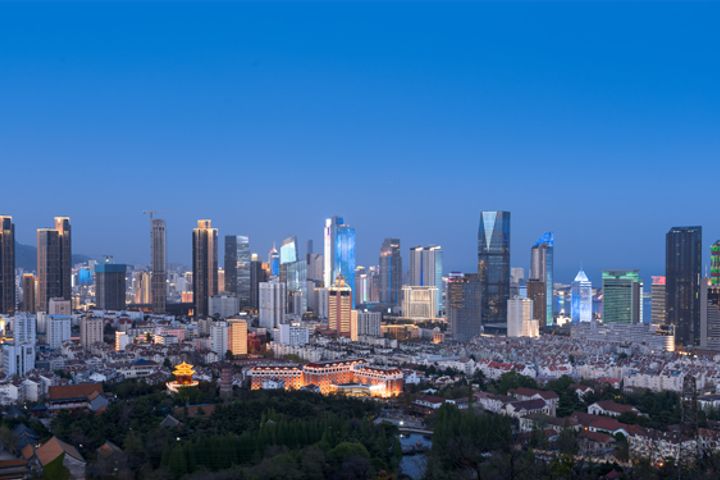 Qingdao Hosts SCO Summit as China's Second-Tier Cities Delve Deeper Into Diplomacy
Qingdao Hosts SCO Summit as China's Second-Tier Cities Delve Deeper Into Diplomacy(Yicai Global) June 8 -- The first council meeting of heads of state after the expansion of the Shanghai Cooperation Organization will convene in Qingdao in eastern China's Shandong province from tomorrow until June 10.
Over and above the geographical advantages of the port city itself, this development also reflects the assumption by second-tier cities with relatively strong economic power of some of the diplomatic functions which were once the exclusive preserve of Beijing, Shanghai and other megacities.
A key feature that singled Qingdao out as being worthy to serve as the host city of the SCO Summit this year from among many potential competitors is its close ties with SCO countries, as state Xinhua News Agency reported.
Qingdao has forged cooperative economic relations with several cities, provinces, states or institutions in seven SCO member or observer states. The import and export trade volume between Qingdao and relevant SCO countries reached USD4.6 billion last year, a rise of almost 10 percent per year.
SCO member, observer and dialog partner states are mostly emerging economies or developing countries that have joined China's Belt and Road Initiative, with which Qingdao has a 'predestined' connection because it straddles the intersection of the Silk Road Economic Belt and the 21st Century Maritime Silk Road.
Hangzhou -- which hosted the 2016 G20 Summit -- Xiamen, Wuhan, Chengdu, Xi'an, Zhengzhou, Suzhou and other second-tier cities have also started to flex their foreign relations muscle in recent years, meaning blockbuster international conferences and large-scale events are now no longer spectacles unique to first-tier cities.
"In the past, all kinds of large-scale events were held only in Beijing and Shanghai, but now some are held in second-tier cities, which will help boost their management," Peng, vice president of the Guangdong Society of Economic Reform, told Yicai Global, adding that third- and fourth-tier cities still lag in security and infrastructure, but this is now out of the question for second-tier core cities, which have really had to pull their socks up to qualify for these events.
Both economic development and population concentration in second-tier core cities have been very rapid in recent years, while the income gap with first-tier cities has been narrowing, Peng noted. "These cities will have even more space for future development than first-tier cities," he added.
"To solve the urban disease in a megacity like Beijing, ten similar central cities are needed," Yang Weimin, deputy director of the Office of the Leading Group for Financial and Economic Affairs, once said. China will accelerate the cultivation of several central cities able to assume national functions to promote the coordinated development of their respective regions and form new areas for economic growth.
Editor: Ben Armour